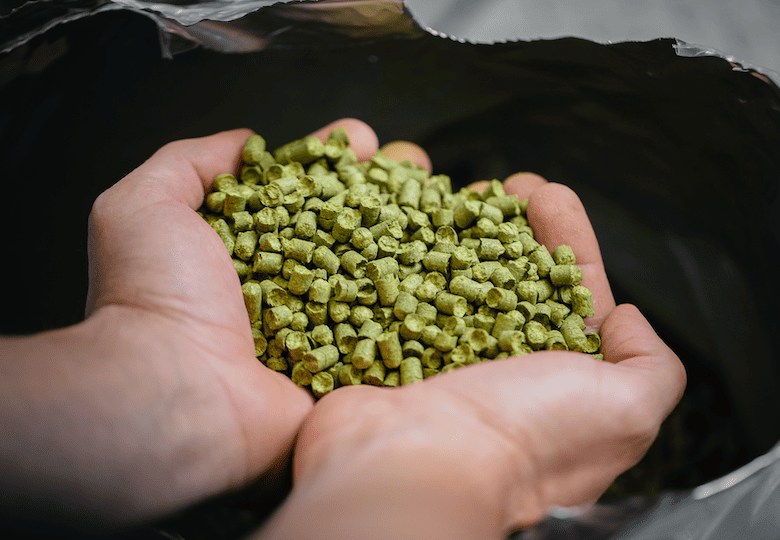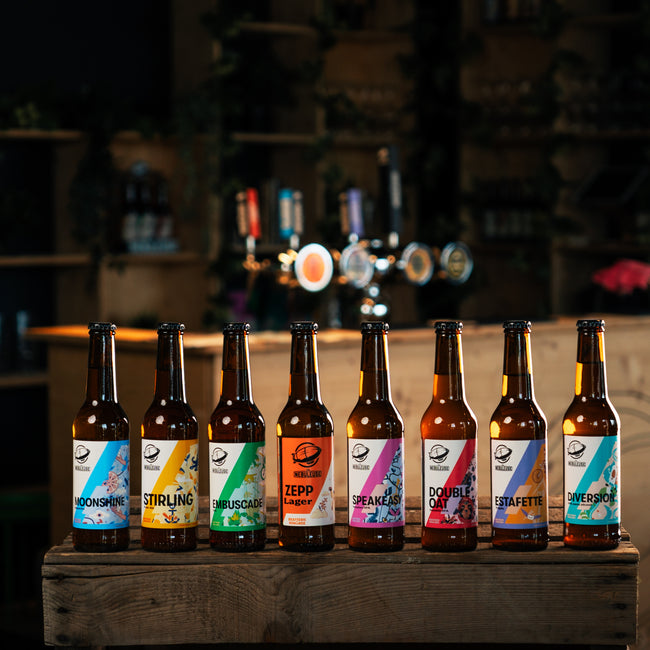Cold Brewing: The New Frontier of Craft Beer

When you think of brewing, you immediately imagine large, steaming vats and the aroma of warm malt filling the air. What if we told you that the future of craft beer might be... cold brew? Brewing creativity continues to push the boundaries , and cold brewing is emerging as an innovative technique that shakes up traditional codes while opening up fascinating new taste perspectives.
An innovative technique that shakes up traditions
The principles of cold brewing explained
Cold brewing is a bit like making cold brew coffee, but much more sophisticated. Instead of heating water to extract the sugars from the malt, this technique uses specific enzymes that work at room temperature. These little biochemical wizards perform the same task as traditional mashing, but with a radically different approach.
The conversion of starch into fermentable sugars takes place slowly and methodically at temperatures between 15 and 20°C. This gentle extraction preserves aromatic compounds that are usually modified by heat, a bit like the exceptional ingredients we select best reveal their subtleties when they are treated with respect.
Innovation in the service of quality
Diversion , our aromatic and good-tasting alcohol-free IPA , perfectly illustrates the possibilities offered by innovative brewing techniques. Cold brewing allows unprecedented control over the extraction of aromatic compounds, paving the way for precise and complex flavor profiles, even without alcohol. Its tropical notes of mango and passion fruit demonstrate that innovation and quality taste go hand in hand.
This innovative approach requires advanced technical expertise. Enzyme management, temperature control, and extraction duration must be calibrated with meticulous precision. It's a bit like haute couture: every detail counts to achieve the desired end result.
The Benefits of Cold Brewing in Beer
Preserved aromas, a renewed experience
Cold brewing reveals aromatic nuances often masked by traditional techniques. Take Speakeasy , our Light IPA with crystal-clear citrus notes. Its delicate profile and thirst-quenching lightness demonstrate how gentle extraction can preserve the most subtle aromas of Hallertauer Blanc and Mandarina Bavaria hops.
This technique also avoids certain chemical reactions that occur under heat conditions, such as the formation of Maillard compounds or accelerated oxidation. The result? Purer, more precise flavors that express themselves with remarkable clarity. It's like going from a low-resolution photo to a 4K image: every detail suddenly becomes more distinct.
Towards a more sustainable brewery
The environmental impact of brewing is a major issue for the future of craft beer. Sustainability isn't just a buzzword ; it's a necessity. Cold brewing provides concrete answers to this challenge. By eliminating the heating phase, this technique significantly reduces energy consumption.
The benefits don't stop there. Cold extraction:
-
Reduces the carbon footprint of the brewing process
-
Reduces water consumption through optimized processes
-
Limits raw material losses through more efficient extraction
-
Allows better preservation of sensitive ingredients
However, the technique requires a significant initial investment and specific expertise. The enzymes used, temperature control equipment, and filtration systems must be perfectly adapted. It's a bit like moving from traditional cuisine to molecular gastronomy: you have to rethink your methods and tools.
Cold brewing, a promising innovation
Cold brewing represents more than just a technical evolution: it's a new way of thinking about craft beer. This approach opens up fascinating possibilities for creating new flavor profiles while addressing current environmental challenges.
Like any innovation that challenges tradition, cold brewing sparks heated debate in the brewing community. But isn't it precisely the essence of craftsmanship to constantly push boundaries and explore new frontiers? Time will tell whether this technique will become a new standard or remain an attractive alternative. One thing is certain: it's already enriching the range of possibilities in the art of brewing.








